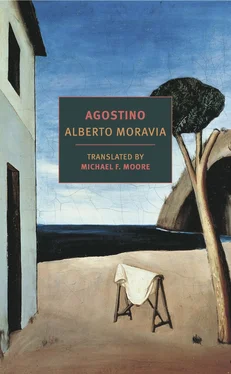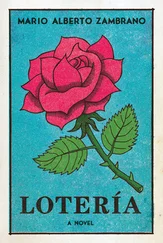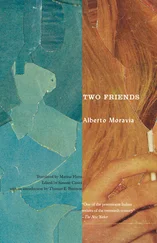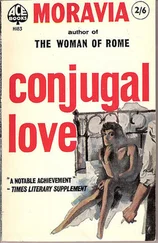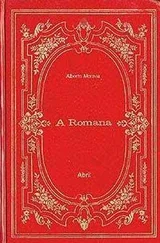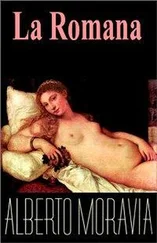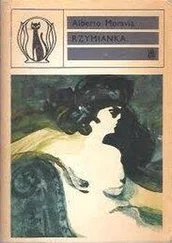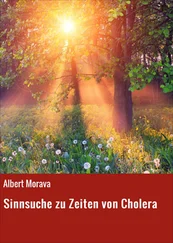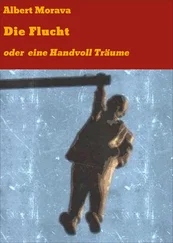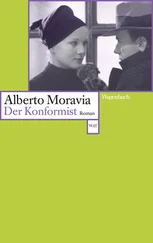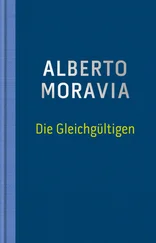The father smiled at these words, pleased to have presented a moral example to his son in the flesh and blood. “You see, this boy is better than you,” he added, patting his son on the head. “He’s poor and he still doesn’t want your ball. He’s letting you keep it, but every time you start acting up and complaining, I want you to remember that in the world there are boys like this who have to work for a living and have never had a soccer ball or any other plaything.”
“It’s my ball,” the son replied, obstinate.
“Yes, it’s yours.” The father sighed distractedly. He looked at his watch and said, “Let’s head back, boy,” in a changed and domineering voice. Without saying a word, Agostino turned the boat toward the shore.
As they came close to the beach, he saw Saro standing in the water observing his maneuvers, and he was afraid the boatman would embarrass him by revealing the trick he had played. But Saro didn’t open his mouth. Perhaps he understood. Perhaps he didn’t care. Quietly and solemnly, he helped Agostino pull the boat onto the beach. “This is for you,” said the man, giving Agostino the agreed sum plus something extra. Agostino took the money and brought it to Saro. “But this part I’m keeping for myself. It’s the tip,” he added with smug and deliberate impudence. Saro didn’t say a word. With a crooked smile he put the money in the black sash around his waist and walked away slowly across the sand toward the shack.
This small incident left Agostino with the feeling once and for all that he no longer belonged to the world of children like the boy with the soccer ball, and that, anyway, he had sunk so low that he could no longer live without deceit and vexation. But it pained him not to be like the boys in the gang either. There was still too much delicacy in him. If he were like them, he sometimes thought, he wouldn’t be so hurt by their crudeness, their vulgarity, their bluntness. So he found that he had lost his original identity without acquiring through his loss another.
ON A LATE-SUMMER day, Agostino and the boys in the gang went to the pine grove to hunt for birds and mushrooms. Of their various feats and exploits, this was the one he liked best. They entered the grove and walked for a long time on the soft soil through a natural corridor formed by the red columns of tree trunks, looking toward the sky to see whether high above them, between the towering branches, there was anything moving or stirring between the pines. When there was, Berto, Tortima, or Sandro, the best of the three, would pull back the rubber band of his slingshot and shoot a sharp rock at the spot where he thought he saw movement. Sometimes a sparrow would plummet to the ground, its wing shattered. Fluttering and chirping pitifully, it would hop and flail about until one of the boys grabbed it and crushed its head between his fingers. But the boys usually caught nothing and had to content themselves with long wanderings through the dense grove, their heads tilted back and their eyes staring upward, venturing farther and deeper to where the underbrush between the pine trees started and the soft barren ground of the dried pine needles gave way to a tangle of thornbushes. This was where the mushroom picking began. It had rained for a couple of days, and the underbrush was still damp with resin-coated leaves and marshy green soil. Amid the thickest bushes, there were large yellow mushrooms as well as small clusters of tiny ones, lustrous with mucous and moisture. The boys picked them delicately, poking their arms between the briars, sliding two fingers beneath the caps and pulling up carefully so they would also get the dirt- and moss-covered stems. Then they stuck them one by one on long pointed sticks. As they worked their way from thicket to thicket, they gathered a few pounds — dinner for Tortima who, as the strongest boy, confiscated the day’s haul for himself. The harvest was bountiful, for after a long hike they found a virgin patch, so to speak, where the mushrooms sprouted densely, one beside the other, on a bed of moss. By sundown the patch had still been only half explored, but it was late and, with several skewers of mushrooms and two or three birds, the boys slowly made their way home.
Usually they took a path that led straight to the beach, but that day they chased after a sparrow that kept taunting them, flitting between the lowest branches of the pine trees and constantly fooling them into thinking it would be an easy target. So they ended up crossing the full length of the grove whose easternmost tip encroached on an area almost abutting the houses of the town. It was growing dark by the time they emerged from the last pine trees into the piazza of a neighborhood on the outskirts of town. The immense unpaved piazza was covered with sand, scattered piles of debris, and tufts of thistle and scrub through which rocky, uncertain paths twisted and turned. Stunted oleanders grew here and there in no particular pattern on the edges of the piazza. There were no sidewalks. A handful of houses had dusty gardens alternating with large open spaces enclosed by chain-link fences. The houses looked tiny as they skirted the square, and the gaping sky over the immense rectangle only amplified the sense of abandonment and misery.
The boys crossed the piazza diagonally, walking two by two like monks. The last in line were Agostino and Tortima. Agostino was carrying two long skewers of mushrooms, and Tortima, in his big hands, a pair of sparrows with bleeding dangling heads.
As they reached the far side of the piazza, Tortima poked his elbow into Agostino’s side. Pointing to one of the houses, he remarked cheerily, “Do you see that? Do you know what it is?”
Agostino took a look. It was a house very similar to the others. Maybe a little bigger, three stories high with a pitched roof covered by slate tiles. The front was painted a sad smoky gray with tightly closed white shutters, and it was almost completely hidden by the trees in the overgrown garden. The garden didn’t appear to be very big. The perimeter wall was covered with ivy, and through the gate you could see a short driveway between two rows of bushes. Beneath an old awning was a door with closed shutters. “There’s nobody home,” said Agostino, pausing to get a better look.
“Nobody?” the other boy said, laughing. In a few words he explained to Agostino who exactly did live there. On previous occasions Agostino had heard the boys talking about such houses, inhabited by women who stayed indoors all day and all night, ready and willing to welcome anyone for a price, but this was the first time he had actually seen one. Tortima’s words reawakened in him all the strangeness and astonishment he had felt the first time he had heard them mentioned. Back then he had hardly been able to believe the existence of such a singular community, the generous and indiscriminate dispenser of the love that to him appeared so difficult. Now the same disbelief made him turn his eyes toward that house as if to detect traces in its outside walls of the incredible life they guarded. By contrast to the fantastic image he had of its rooms, each illuminated by a female nude, the house looked singularly old and grim. “Really?” he said, feigning indifference, but his heart had started beating faster.
“Yes,” said Tortima, “it’s the most expensive one in town.” He added the particulars of the prices, the number of women, the people who went there, and the amount of time you could stay. The information almost displeased Agostino, since it substituted mundane details for the vague barbaric image of these forbidden places he had formed earlier. Still, feigning a nonchalant tone of idle curiosity, he asked his companion many questions. Now that his initial surprise and agitation had passed, an idea with a stubborn and singular vitality formed in his mind. Tortima, who seemed well informed, provided all the clarification he wanted. And so, since night had fallen, the group broke apart amid the small talk. Agostino handed the mushrooms over to Tortima and headed home.
Читать дальше
